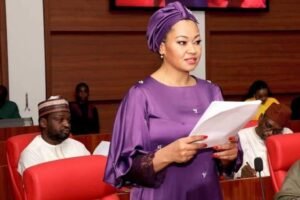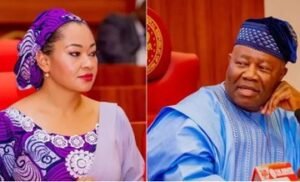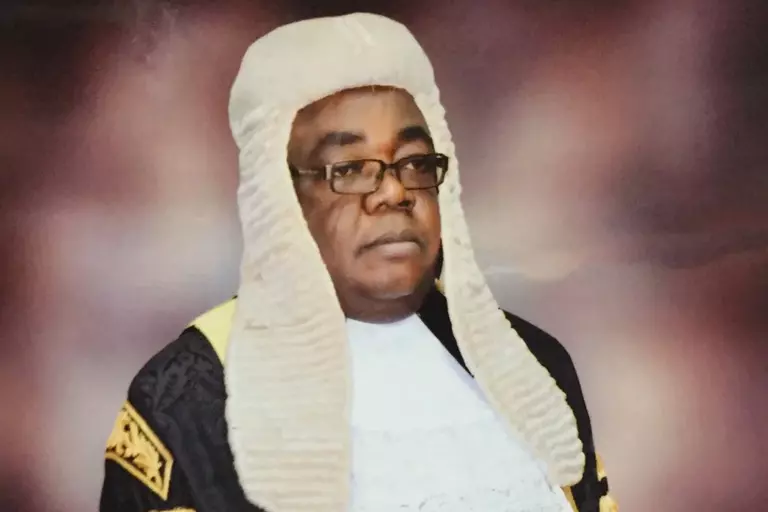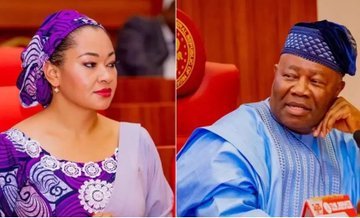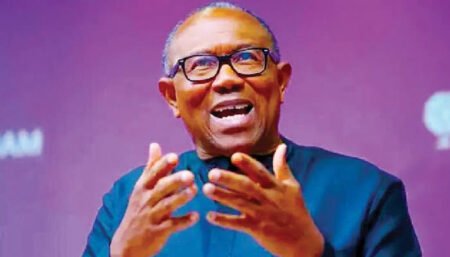Justice Chima Nweze of the Supreme Court of Nigeria is dead.
Justice Nweze died yesterday at the age of 64, source said.
Justice Nweze had been battling illness for several years, and his health had deteriorated dramatically during that period.
Indeed, his failing health was a factor in the current dissatisfaction among Supreme Court Justices, who voiced their concerns during the reign of the immediate previous Chief Justice of Nigeria (CJN).
The South East region now has a noticeable absence on the Supreme Court, as Justice Odili has resigned and Justice Ngwuta died two years ago.
He was one of the justices that stood out during the judgement on Emeka Ihedioha’s application, a former governor of Imo State. Ihedioha had petitioned the Supreme Court to reconsider its decision to remove him from office, but while the majority of the seven-member panel disagreed with him, Chima Nweze saw substance in the plea.
In his opposing opinion, Nweze requested the court overturn the January 14 judgement that removed Ihedioha from office, calling it a nullity and made in bad faith.
He also declared Hope Uzodinma of the All Progressives Congress (APC) as governor null and void due to “wrong declaration” and found that Uzodinma deceived the court with unconfirmed votes in 388 polling units.
“This Supreme Court decision will haunt our electoral jurisprudence for a long time,” he said.
“The substance of Ihedioha’s case was lost in the time frame in my intimate reading of the January 14 judgement.” This court has already set aside its own earlier judgement and hence cannot use time to destroy any person’s rights.
“This court has the authority to overrule itself and can review any decision that is not in accordance with justice.” This court has a responsibility to improve its reputation. This application, in my opinion, should be successful. I now issue an order overturning this court’s ruling of January 14 and ordering that the certificate of return provided to the appellant be returned to INEC. In addition, I issue an order declaring the respondents the winners of the March 9 gubernatorial election.”
Those who anticipated the verdict to be unanimous, as it usually is, were taken aback by Nweze’s viewpoint. He was the only one of the seven judges on the panel who was not present when the court fired Ihedioha.
The ruling was unanimous at the time.
‘Atiku’s Appeal Is Without Merit’
Nweze was a member of the Supreme Court panel that denied Atiku Abubakar, the PDP presidential candidate, a request to view the Independent National Electoral Commission (INEC) servers.
At the time, Atiku was contesting President Muhammadu Buhari’s announcement as the victor of the 2019 presidential election.
“I see no reason to depart from the lower court’s reasoning.” “I find that this appeal is without merit, and it is therefore dismissed,” Nweze said in a unanimous decision.
Atiku eventually lost his appeal.
Legal Career
Former President Goodluck Jonathan endorsed the National Judicial Council’s (NJC) proposal to nominate Nweze to the Supreme Court in 2014. Following that, he was confirmed as a Supreme Court judge following a Senate screening.
Nweze has previously served as a court of appeals judge. He formerly served as a judge on Enugu’s high court. Nweze
Okwesilieze Nwodo, a former governor of Enugu State, appointed Nweze as his legal counsel. The jurist, who was born on September 25, 1958, earned all of his degrees at the University of Nigeria, Nsukka (UNN), from bachelor’s to Ph.D.
Between 1972 and 1977, he attended St. John Cross Seminary in Nsukka. Nweze was admitted to the bar in 1984 and finished his National Youth Service Corps (NYSC) in Bauchi in 1985.
In 1999, he was the chairman of the Ogun state governorship and legislature houses election petition tribunal; in 1998 and 1999, he was the head of the Nsukka robbery and guns tribunal; and in 1999, he was a member of the Ondo state local government election petition tribunal.

